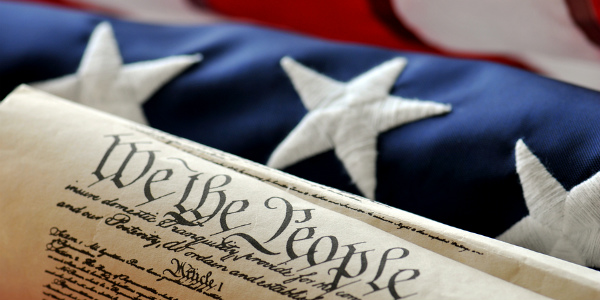This July 4 let’s make a commitment to preserving our credit union history

In historical terms, credit unions are barely adolescents. The first credit union in the United States is celebrating its 106th anniversary in New Hampshire and Congress authorized federal credit unions just 80 years ago. There are still plenty of people around who helped start their credit union or who have great stories about the people that did. Recording these recollections can bring the Credit Union Movement to life better than a history book ever could.
At the Credit Union Association of New York we have started recording member recollections, and other associations and credit unions should as well. Ultimately, we should have a nationwide oral history data base dedicated to telling the credit union story.
Nice idea you say, but does it really matter? For credit unions, archiving our history is crucial. Here’s why.
The single biggest challenge facing the industry as it matures is how to provide the goods and services people need in a society that has fundamentally changed over the last hundred years while remaining true to the ideals that necessitated and inspired credit unions in the first place. Credit unions not only have a legal obligation, but a moral one, to help people of modest means and to make sure that the American consumer has a place to go where he can get a good deal for his financial products. Credit unions don’t enjoy tax-exempt status because they are not-for-profit cooperatives rather; they are given tax-exempt status because Congress believes that, as not-for-profit institutions, they offer an alternative to the banking industry.
How do we make sure that “helping people of modest means” doesn’t become a meaningless platitude? Or that the need to provide alternative financial services doesn’t get pushed aside in a hyper competitive financial industry? Our history is the best way for credit unions to remain true to founding ideals even as they adapt to accommodate changes in marketplace.
Oscar Wilder defined a cynic as someone who knows the price of everything and the value of nothing. To me the credit union difference can’t simply be quantified: to really understand it must be exemplified by credit unions that demonstrate that people really do come first. At our recent annual convention, the Credit Union Association of New York started recording reflections of credit union volunteers and executives about their credit union’s history and how they helped people along the way.
I heard stories about a credit union run out of a family’s basement that would literally be open 24 hours a day seven days a week. This meant that in the days before ATMs, the teacher on her way home from work could deposit a paycheck and the custodian whose shift did not end until 11:30 PM had a place to do his banking.
I heard from the CEO of a firefighter’s credit union whose father would drive around to firehouses on Friday nights collecting deposits and loan payments. If a member with a payment due was not to be found his father would call into the bunking area and remind people to tell “Mike” that a payment was owed. Sometimes Mike would forget that he wasn’t supposed to be there and respond “OK, I will.”
I heard about the credit union started on an upstate Air Force Base that not only provided a place for young airmen to place their money but also educated them about the importance of savings. These members would come back years later to thank the credit union for these lessons.
But my favorite story was the one about the time a member’s relative, who was visiting New York from another country and couldn’t speak English, came into the credit union one day and started talking to the CEO, who asked how his family member was doing. The relative explained that the member had just passed away – about 10 minutes ago – and he was coming to the credit union because he knew that the now deceased member trusted the credit union to do the right thing. The CEO helped the relative make the necessary arrangements and even wrote a letter in English so that the relative could explain what had happened. Somehow, I don’t think many people would run to the nearest Bank of America branch to deal with a family crisis.
These stories tell us more than where credit unions came from; if used properly they could help inspire a new generation of credit union professionals and volunteers to keep the industry headed in the right direction. Opinion surveys say that millennials are an idealistic group of young people who want to make a difference. Many of them have a lot in common with the white haired ladies and balding gentlemen who, if they didn’t start the Credit Union Movement, played a crucial role in making it grow. Your credit union, or at the very least its association, should dedicate a part of its website to enabling these potential members and employees to hear firsthand accounts of just how the credit union they are thinking of joining or applying to work in really was started to help people. If you do, I guarantee you will end up with one or two more inspired employees who creatively apply the lessons of the past to today’s challenges and more members dedicated not only to depositing their money with your credit union but also their time and effort to insuring that your credit union is around for the next eighty years.





